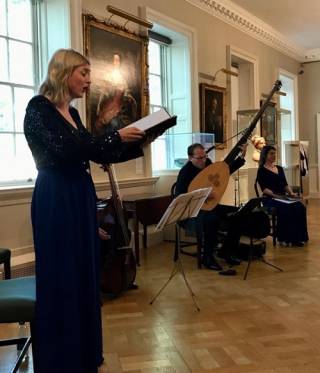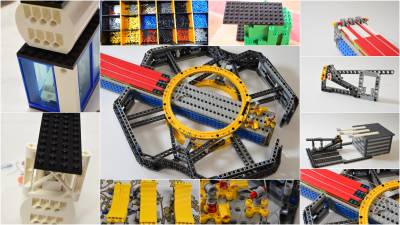Below is a summary of some of the successes of our funded projects from 2022-23
 The life and works of a late-Renaissance Italian virtuosa: Leonora Bernardi (1559-1616)
The life and works of a late-Renaissance Italian virtuosa: Leonora Bernardi (1559-1616)

Seminar with roundtable & concert, 6 July 2023
This two-part event involved a fruitful collaboration between academics and music professionals in order to develop and share with new audiences research findings on the recently discovered poet, dramatist and singer Leonora Bernardi (1559-1616), now published in Drama, Poetry and Music in Late-Renaissance Italy: The Life and Works of Leonora Bernardi (UCL Press, June 2023). The interdisciplinary seminar included research presentations by some of the volume’s authors and by musicologists with expertise in performance, ending with a stimulating roundtable discussion with audience participation led by Prof. Laurie Stras (Southampton).
The well-attended public concert that followed was held in the beautiful Picture Gallery of the Foundling Hospital, and featured an ensemble of music professionals. The concert included first ever performances of monodic and polyvocal settings of Bernardi’s poetry based on musical transcriptions by Eugenio Refini and Davide Daolmi, besides settings of other female poets. The two sopranos also brilliantly displayed the virtuosic repertoire that was being pioneered by small, all-female consorts at the courts of Ferrara and Florence, and performed solo songs by early female composers Leonora Orsini and Francesca Caccini.
 The Voice of Warning
The Voice of Warning

RCA Preemptive Listening + UCL Warning Research Centre + STOP Sizewell C
Led by artist Aura Satz and researcher/curator Francesca Laura Cavallo, UCL's Warning Research Centre hosted two workshops exploring the aural dimension of warnings and the soundscapes they occupy (and create) through emergency sirens. The workshops, organised in collaboration with Stop Sizewell C, focused on the controversial Sizewell C proposed development of a nuclear power station in Suffolk.
Workshop 1 consisted of a walk followed by deep listening and sounding exercises, leading to co-creating a new 'siren' for Sizewell: a sound or interpretation of a possible equivalent that not just warns but points to the imagination of a possible future. Overall participants commented they found it stimulating to think about Sizewell C in terms of sound and sirens and also commented feeling empowered by the activity and more hopeful about the possibility of stopping the construction of stopping the construction of Sizewell C. Workshop 2 at UCL held a space for reflection on what it means to be the voice that warns by discussing the listening and sounding exercises in Sizewell in relation to broader discourses about warnings and risk communication. Some important observations emerged, such as the idea of co-creation as a tool for deliberative democracy; risk mapping and sounding as a useful method for creative engagement with risk assessment, and sound/ aural culture as a particularly helpful tool to think through emergency preparedness and deep time risks due to its inherent participatory nature and connection to the invisible.
 Music Making through Music and Making (MMMM)
Music Making through Music and Making (MMMM)

A team of UCL researchers offered three days of practical music, computer programming, and LEGO® making activities to secondary school pupils and teachers, in June and July 2023. Over 70 pupils and staff from six secondary schools in and around London attended two whole-day events hosted at the UCL Institute of Education (IOE). Two pupil workshops focused on creative learning through designing and building musical instruments and interfaces using LEGO®, robotics sensors and Raspberry Pi single-board computers. Working in groups of around five, each pupil had the opportunity to build a functioning musical instrument from LEGO®, taking into consideration sound quality and musical function, player ergonomics, as well as structural and cosmetic design. Each workshop finished with all pupils coming together in a musical ‘jam’, performing with a LEGO® instrument that they made over the course of the day. The third professional development workshop was an opportunity for the researchers and a smaller group of teachers to discuss and reflect upon the pupils’ workshop experiences, and how these might link with the wider school curriculum.
Funding from Music Futures enabled the purchase of the latest LEGO® robotic sensor kits and the necessary compatibility hardware to interface these sensors with Raspberry Pis, as well as funding doctoral student research support and some visitor refreshments. The research team are now busy preparing the various strands of recorded datasets for analysis. They intend to publish a series of journal articles reporting findings, as well as releasing some of the design documentation and programming code freely online.
 Close
Close

